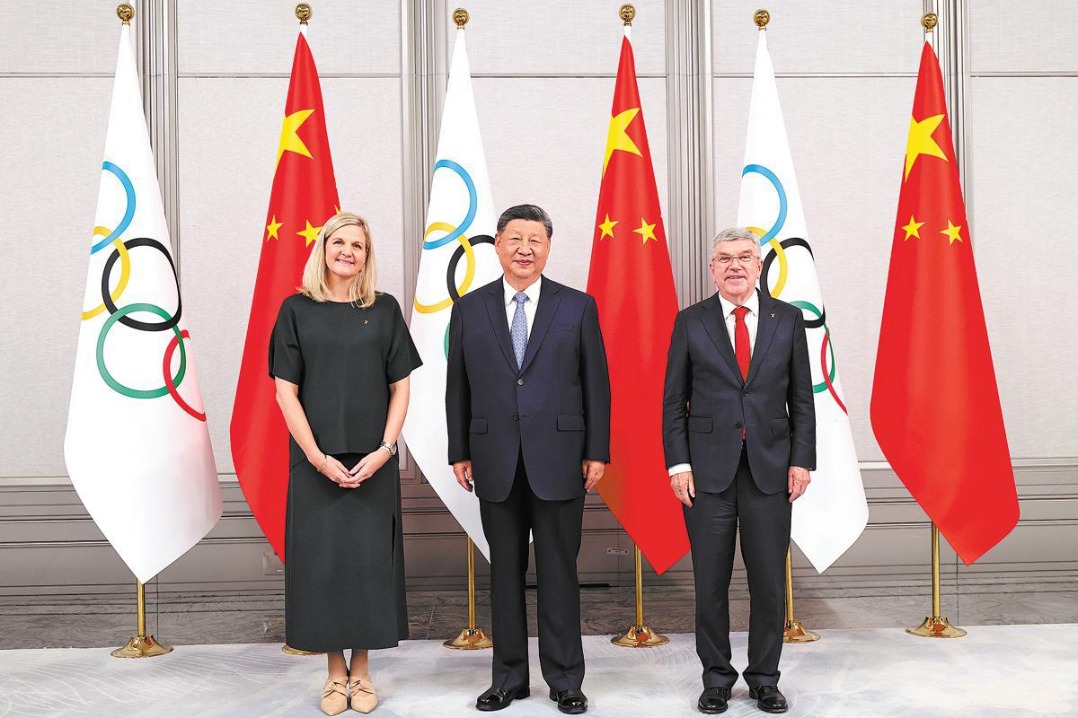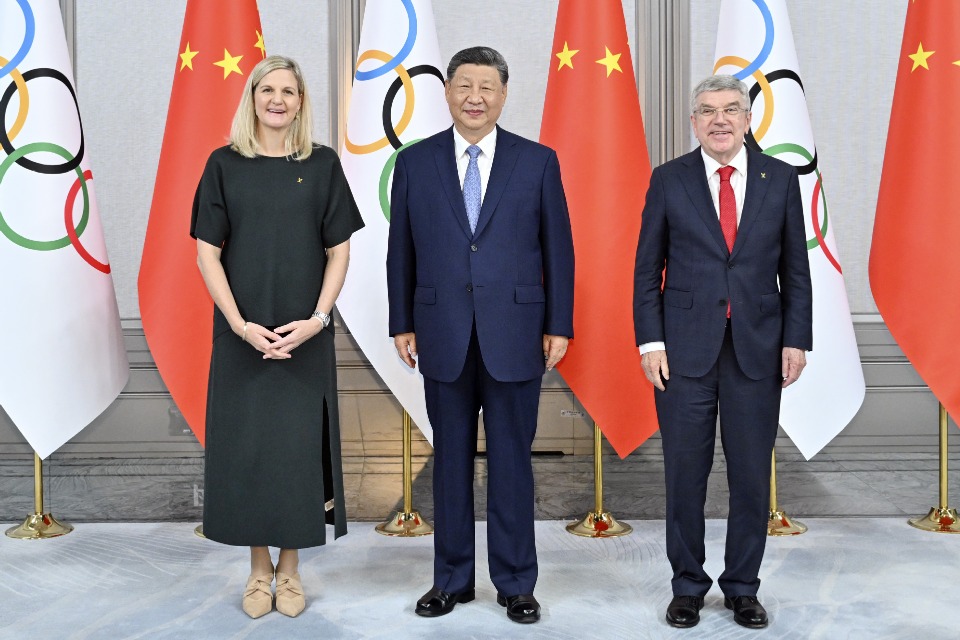Letters correspond to bonds across Strait
Handwritten notes rekindle memories of kinship ties

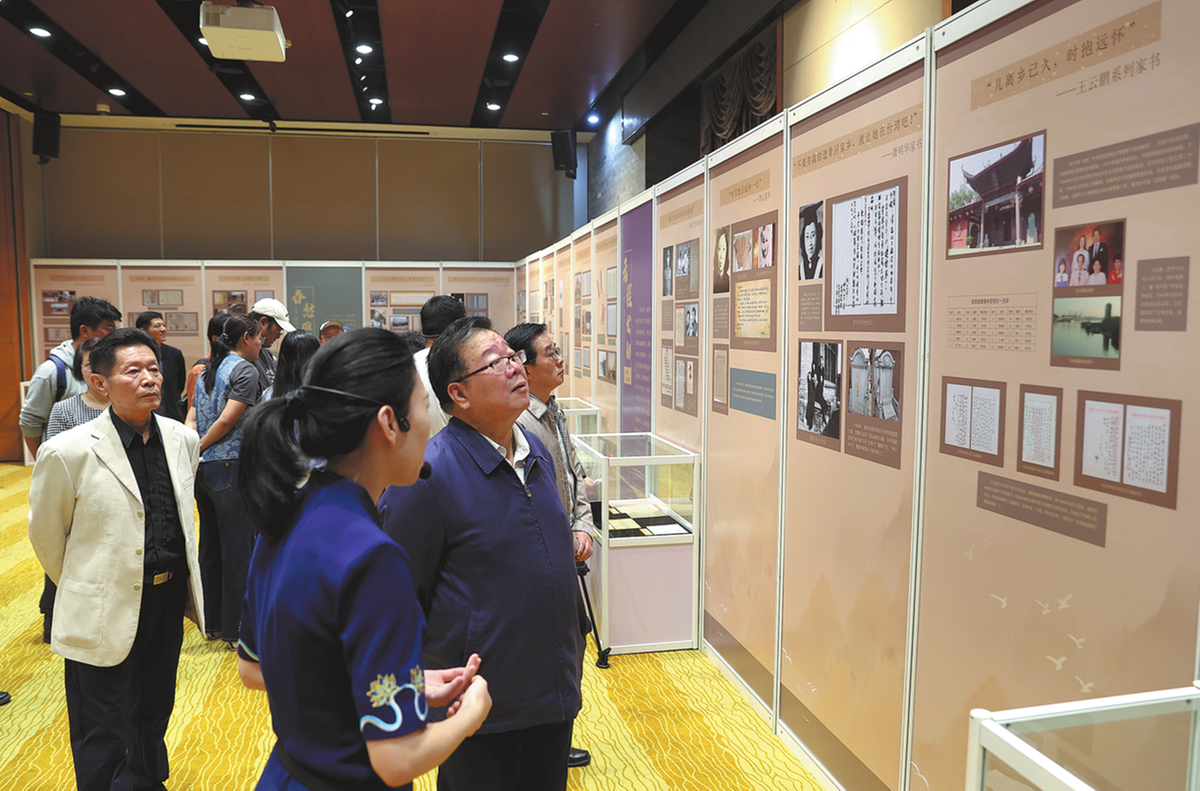
Editor's note: The Taiwan question is a key focus for China and the international community. China Daily is publishing a series of reports to track hot Taiwan-related topics and address disinformation from the Democratic Progressive Party administration.
The recent resurgence of timeworn letters that once crossed the Taiwan Strait has renewed the shared bonds and memories between compatriots on both sides.
Before the widespread use of mobile phones and the internet, communication between the mainland and the island relied mainly on handwritten letters, many of which have been collected and studied by researchers.
These letters conveyed the deep longing for home felt by people across the Strait. They not only preserved family ties but also reflected socioeconomic changes and cultural exchanges across the Strait over time.
In 2020, while sorting through his parents' belongings, Fan Chih-min from Taipei came across letters written by his mother, Li Lanfeng, to her brother Li Zihe in her hometown of Pucheng, Fujian province.
"My mother was separated from her younger brother when she was 9 and he was just 3," Fan said. "They lost contact for four decades and only reconnected through letters in 1988."
Among the yellowed correspondence, Fan found a telephone number and decided to call. The call connected him with his long-lost relatives on the mainland. In 2020, he traveled to Pucheng and finally met his uncle.
"My mother corresponded frequently with her relatives in Pucheng and returned home three times to visit her younger brother and elder sister," Fan said. Between 1988 and 2001, she sent 15 letters to her brother. One letter read "As long as we are alive, we will meet again someday".
"Later, she fell ill, and contact was interrupted," Fan added. His accidental discovery helped write a new chapter in the story of family connections across the Strait.
Li Zihe carefully preserved the letters sent by his sister from Taiwan. After contacting the China Museum for Fujian-Taiwan Kinship, he and his wife agreed to donate all the letters to the museum for exhibition. In July, Fan brought his son from Taiwan to visit the museum in Quanzhou, Fujian province, to see the letters.
Since 2019, the China Museum for Fujian-Taiwan Kinship has undertaken a preservation project to collect, study and interpret these cross-Strait letters. The museum houses over 4,000 letters from 28 provincial regions, including Taiwan, Hong Kong and Macao, as well as Fujian and Guangdong provinces, spanning from 1913 to 2023.
Shen Wenfeng, deputy director of the museum, said these family letters reaffirm that "both sides of the Strait are one family".
According to Shen, from the Qing Dynasty (1644-1911) through Japan's colonial rule of Taiwan (1895-1945), letters exchanged between family members across the Strait never ceased. After 1949, direct postal service between Taiwan and the mainland was suspended. Letters were then sent via Hong Kong, Southeast Asia, the United States, or relayed through overseas Chinese compatriots.
Correspondence and exchanges between the two sides reached an unprecedented level after 1987, when the Taiwan authorities allowed residents to visit the mainland to see relatives, according to Zhang Xiao, a researcher at the museum.
Xu Bo, 70, said that his father, originally from Taiwan, was unable to return because of his political status. "With some family members on the mainland and others in Taiwan, they lost contact for nearly 30 years," he said.
Though the address of their hometown was etched in their hearts, they could not write letters due to restrictions on cross-Strait communication.
"Finally, in 1987, Taiwan allowed visits to relatives on the mainland and later permitted indirect communication. After being away for 40 years, my father sent his first letter home. It took two weeks to reach my grandmother in Taiwan," he said.
"The charm of a family letter lies in its power as a call of affection, a call of one's hometown, a call of the motherland. That is what a family letter truly is," researcher Zhang said.
Zhang Ding, deputy director of the Museum of Family Letters at Renmin University of China, said letters across the Strait are historical witnesses to the long-standing exchanges between people on both sides. "They reflect our shared cultural roots, national spirit, and traditional virtues," he said.
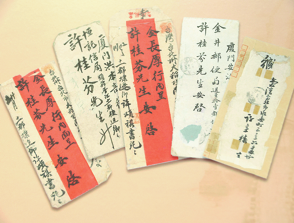
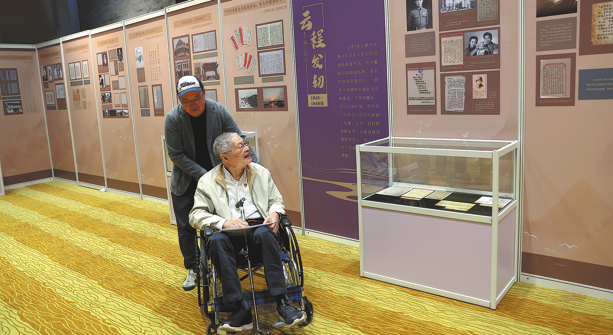
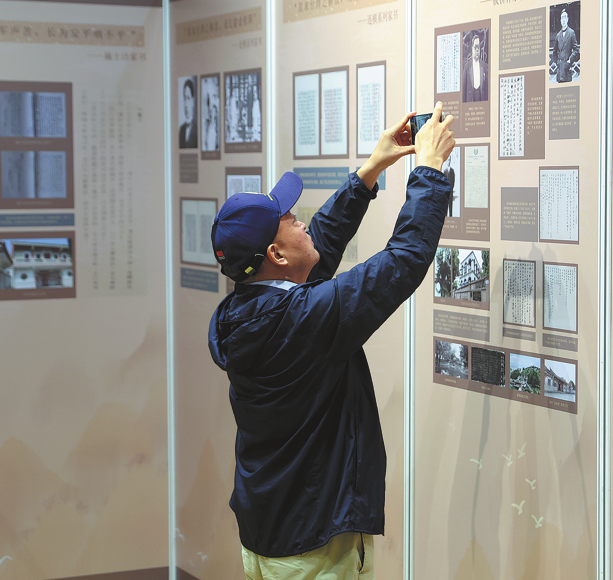
Today's Top News
- China's consumer prices creep up in October
- Fresh opportunities seen in China
- Xi meets IOC chief and its honorary president
- National Games an embodiment of China's strength, unity and progress
- Xi declares 15th National Games open
- Xi attends opening ceremony of 15th National Games

















